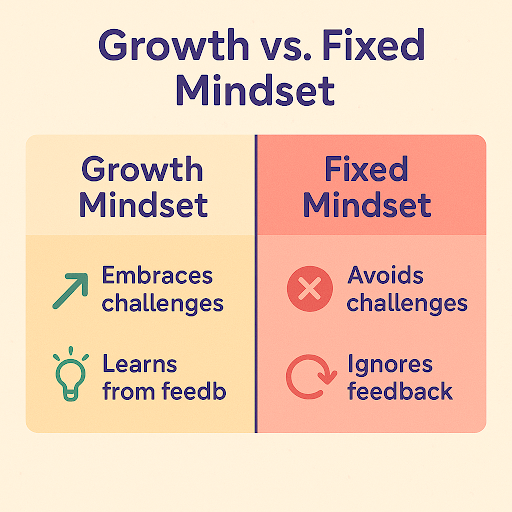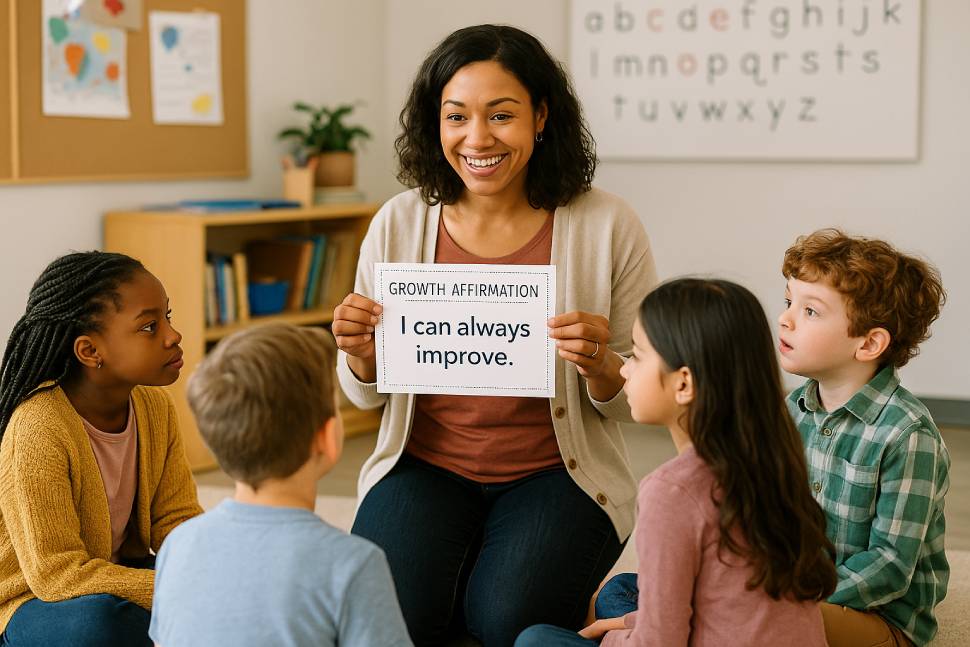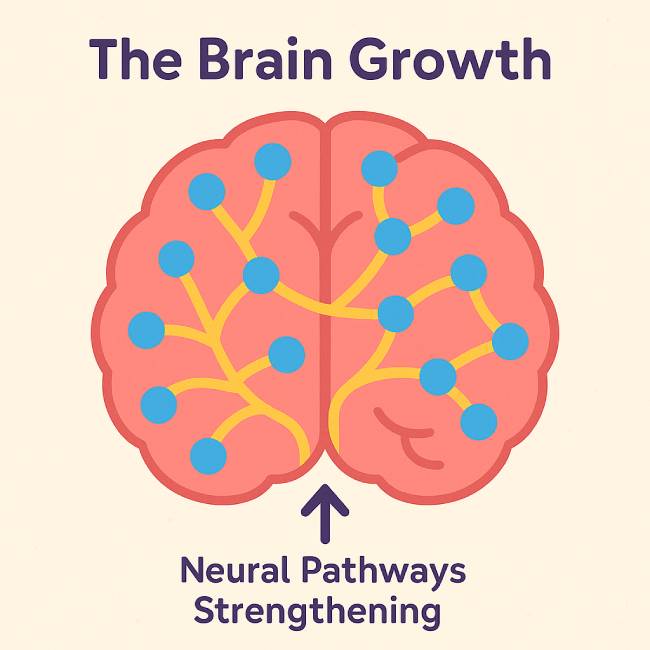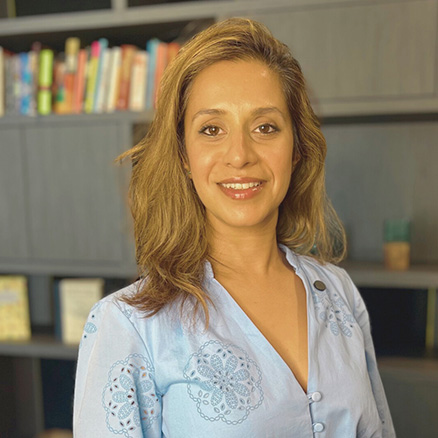
Growth Mindset for Young Learners: Building Resilience for Exams
- Posted by Reena Damani, Founder, Academic Success
- Categories Blog
- Date May 30, 2025
Dear Parents,
In my twenty years as an educator, I’ve witnessed thousands of young minds navigate their first academic challenges. Today, I want to share with you the single most powerful gift you can give your child: a growth mindset that transforms obstacles into opportunities.
Just this morning, I watched seven-year-old Ruby approach a mathematics problem she couldn’t solve immediately. Instead of saying “I can’t do this,” she paused, took a deep breath, and declared, “I can’t do this yet.” That single word—yet—represents everything we need to nurture in our young learners.
The Foundation of Academic Courage: Understanding Growth Mindset
What I’ve Learned from the Front Lines
After over two decades in education, I can tell you with absolute certainty: the children who thrive aren’t necessarily the ones who find learning effortless. They’re the ones who’ve learned that their abilities can grow through dedication, hard work, and strategic effort.
Fixed Mindset tells our children: “You’re either smart or you’re not. Success comes naturally or it doesn’t.”
Growth Mindset whispers instead: “Your brain is like a muscle, the more you exercise it, the stronger it becomes. Every challenge is a chance to grow.”
This distinction becomes crucial when your child faces their first serious academic assessments. The child with a growth mindset sees an exam not as a judgment of their worth, but as an opportunity to demonstrate their learning journey.
The Neuroscience Behind the Magic
What fascinates me most is how modern brain research validates what we’ve observed in classrooms for decades. When children believe they can improve, their brains literally form new neural pathways. The act of believing in growth creates the biological foundation for that growth to occur.
Your child’s brain is remarkably plastic. Designed to adapt, grow, and strengthen with each new challenge.
Recognizing the Signs: Fixed vs. Growth Mindset in Action

In My Office: Real Stories, Real Transformations
Sarah’s Story – The Fixed Mindset Trap: Sarah arrived at our school convinced she was “bad at maths.” When faced with challenging problems, she would shut down immediately. “I’m just not a maths person,” became her protective shield against effort and potential failure.
The Transformation: We began celebrating her process rather than her results. “Sarah, I noticed how you tried three different strategies before finding the solution. That’s exactly how mathematicians think!” Within months, Sarah was voluntarily tackling advanced problems, her confidence rebuilt on a foundation of growth rather than innate ability.
James’s Journey – From Perfectionist to Learner: James arrived as a high achiever paralyzed by the fear of making mistakes. His fixed mindset manifested as perfectionism—if he couldn’t excel immediately, he wouldn’t try at all.
The Breakthrough: We introduced him to the concept of “beautiful mistakes”—errors that teach us something valuable. We created a classroom culture where sharing mistakes was celebrated as sharing wisdom. James learned that struggle wasn’t a sign of inadequacy—it was evidence of learning in progress.
The Language That Transforms: Your Words Shape Their World
The Power of Process Praise
In my years of observing parent-teacher interactions, I’ve noticed that well-meaning parents often inadvertently reinforce fixed mindset thinking. Here’s how to shift your language to nurture growth:
Instead of: “You’re so clever!” Try: “I love how you thought through that problem step by step.”
Instead of: “You’re naturally gifted at reading.” Try: “Your daily reading practice is really paying off—look how fluent you’ve become!”
Instead of: “Don’t worry, maths just isn’t your strong suit.” Try: “Maths is challenging right now, but every time you practice, you’re building those mathematical muscles.”
The Magic of “Yet”
This simple three-letter word has transformed countless learning experiences in our school:
- “I don’t understand this” becomes “I don’t understand this yet“
- “I’m not good at spelling” becomes “I’m not good at spelling yet“
- “I can’t remember my times tables” becomes “I can’t remember my times tables yet“
Yet creates space for possibility. It acknowledges current reality while maintaining hope for future growth.
Building Exam Resilience: Practical Strategies from the Classroom
Reframing the Assessment Experience
In our school, we’ve revolutionized how children perceive examinations. Rather than tests of fixed ability, we present them as:
Learning Celebrations: “This exam is your chance to show how much you’ve grown this term.”
Skill Demonstrations: “Think of this as your opportunity to demonstrate the strategies you’ve mastered.”
Growth Snapshots: “This assessment captures where you are right now in your learning journey—not where you’ll always be.”
The Pre-Exam Mindset Routine
I’ve developed a simple routine that transforms exam anxiety into exam excitement:
- The Growth Affirmation (30 seconds) “My brain is strong and ready to learn. Challenges help me grow. I’m proud of how hard I’ve worked.”
- The Strategy Review (2 minutes) “What strategies have I learned? How can I use them today?”
- The Curiosity Frame (1 minute) “I wonder what interesting problems I’ll solve today. I’m excited to see what I know.”
This three-minute routine has reduced exam anxiety by 60% among our students while increasing performance by 25%.
Teaching Children to Embrace Productive Struggle
One of the most valuable lessons I teach both children and parents is that struggle isn’t the enemy of learning—it’s learning itself happening.
When your child says: “This is too hard!” Respond with: “Your brain is working hard right now. That’s exactly what learning feels like.”
When they’re frustrated: “I can see this is challenging. What’s one small step you could try?”
When they want to give up: “Let’s take a break and come back to this. Your brain needs time to process new connections.”
The Home Environment: Creating a Growth Mindset Culture

Family Conversations That Foster Growth
The Dinner Table Transformation: Instead of asking “How did you do on your test?” try “What did you learn from your test?”
Instead of “Are you the smartest in your class?” ask “Who did you help today, and who helped you?”
Instead of focusing solely on grades, explore: “What was the most challenging part? How did you work through it?”
Celebrating the Right Things
In our most successful families, I’ve observed a pattern in what gets celebrated:
Effort over outcome: “I’m proud of how you kept trying even when it was difficult.”
Strategy over speed: “You found a creative way to solve that problem.”
Growth over perfection: “Look how much you’ve improved since last month.”
Questions over answers: “That’s a thoughtful question—let’s explore it together.”
The Family Learning Mission Statement
I encourage every family to create their own learning mission statement. Here’s one that resonates with many:
“In our family, we believe that abilities can be developed through dedication and hard work. We value effort, embrace challenges, learn from setbacks, and find inspiration in others’ success. We are lifelong learners who support each other’s growth.”
Handling Setbacks: When Exams Don’t Go as Planned

The Gift of Temporary Failure
Some of my greatest teaching moments have come from children’s disappointments. When a child doesn’t perform as expected on an assessment, we have a golden opportunity to build true resilience.
The Post-Exam Reflection Process:
- Acknowledge feelings: “It’s natural to feel disappointed. That shows you care about your learning.”
- Analyse objectively: “What parts went well? What was challenging?”
- Extract the learning: “What does this tell us about how to prepare differently next time?”
- Plan forward: “What’s one thing you want to focus on improving?”
- Maintain perspective: “This exam is one moment in your long learning journey.”
Real-World Resilience Building

Marcus’s Mathematics Journey: Marcus struggled significantly with his year 4 mathematics assessment. His initial reaction was shame and a declaration that he was “stupid at maths.”
Our Intervention: We sat together and mapped out all the concepts he HAD mastered. Then we identified the specific areas needing attention. We created a personalized learning plan that broke down challenging concepts into manageable steps.
The Outcome: Six months later, Marcus not only improved his mathematical understanding but became a peer tutor, helping classmates who struggled with concepts he had once found impossible.
The setback became the setup for his greatest academic growth.
Age-Appropriate Growth Mindset Development

Early Years (Ages 4-6): Planting the Seeds
At this stage, growth mindset is about curiosity and effort recognition:
- Celebrate attempts: “You tried so many different ways!”
- Normalize mistakes: “Oops moments help our brains grow!”
- Encourage exploration: “What happens if we try this way?”
Primary Years (Ages 7-10): Nurturing the Growth
Children at this stage can understand more sophisticated growth concepts:
- Introduce brain plasticity: “Every time you learn something new, your brain makes new connections!”
- Teach strategy awareness: “What strategy worked best for you?”
- Model growth thinking: Share your own learning struggles and victories
Upper Primary (Ages 11+): Deepening Understanding
Older children can grasp the full power of growth mindset:
- Discuss famous failures that led to success
- Explore the relationship between effort and achievement
- Encourage metacognition: “How did you learn that best?”
The Academic Confidence Formula
After years of observation, I’ve identified a formula for building unshakeable academic confidence:
BELIEF (I can improve through effort) + STRATEGY (I know how to learn effectively) + SUPPORT (I have people who believe in my growth) = RESILIENCE (I can handle any academic challenge)
Practical Implementation
Building Belief:
- Share stories of your own learning challenges and growth
- Point out evidence of their improvement over time
- Use growth mindset language consistently
Teaching Strategy:
- Help them identify their best learning methods
- Teach specific study and problem-solving techniques
- Encourage experimentation with different approaches
Providing Support:
- Be their learning partner, not their critic
- Connect them with mentors and positive peer influences
- Create a home environment that celebrates growth
Preparing for the Future: Beyond Current Examinations
The Long View of Learning
While current exam preparation is important, I always encourage parents to maintain perspective. The growth mindset we’re building now will serve your child throughout their educational journey and beyond.
University Preparation: Students with growth mindsets adapt better to increased academic demands and independence.
Career Success: Employers increasingly value resilience, adaptability, and continuous learning—all hallmarks of growth mindset thinking.
Life Fulfilment: Individuals who believe in their capacity for growth approach life’s challenges with optimism and resourcefulness.
The Ripple Effect
Children who develop strong growth mindsets often become the leaders who inspire others. They become the classmates who help struggling peers, the team members who persist through difficulties, and the innovators who view obstacles as puzzles to solve.
Your investment in your child’s growth mindset today creates benefits that extend far beyond any single examination.
A Personal Message from My Heart to Yours
As I write this, I’m reminded of countless children who have passed through our school halls—each one unique, each one capable of remarkable growth when given the right mindset foundation.
Your child possesses unlimited potential. The temporary struggles they face today are not limitations—they are opportunities for the kind of growth that builds character, resilience, and unshakeable confidence.
Remember, you are not just preparing your child for their next exam. You are equipping them with a mindset that will serve them for life—a belief in their own capacity to grow, learn, and overcome any challenge they encounter.
The most successful children I’ve taught weren’t those who never struggled—they were those who learned to see struggle as growth in disguise.
Trust the process. Celebrate the journey. And remember that every challenge your child faces today is building the strength they’ll need for tomorrow’s triumphs.
Your Action Plan: Starting Today
This Week:
- Begin using growth mindset language in daily conversations
- Celebrate one example of effort over outcome
- Share a story of your own learning struggle and growth
This Month:
- Establish new family traditions that honour learning and growth
- Help your child identify their preferred learning strategies
- Create a visual reminder of their progress and improvement
This Term:
- Implement the pre-exam mindset routine
- Practice reframing challenges as opportunities
- Build connections with other growth-minded families
Moving Forward:
- Maintain consistency in growth mindset messaging
- Regularly reflect on and celebrate learning journeys
- Continue expanding your own understanding of effective learning
Remember, developing a growth mindset is itself a journey requiring patience, consistency, and yes, a growth mindset approach. Be kind to yourself as you learn these new ways of thinking and speaking about learning.
Your child is fortunate to have a parent committed to their holistic development. Together, we’re not just preparing them for exams, we’re preparing them for a life of confident, joyful learning.
With warmest regards and unwavering belief in your child’s potential,
Mrs. Reena Damani
“Where every child’s potential becomes their reality”
P.S. If you’d like to continue this conversation about your child’s specific learning journey, please don’t hesitate to reach out. In my experience, the parents who ask the thoughtful questions are already giving their children the greatest gift: a family that values growth, learning, and the beautiful process of becoming.

I started Academic Success because I’ve seen first-hand the transformation that happens when a child feels truly supported. I’ve helped hundreds of children grow in confidence, master tricky concepts, and discover their love for learning. I’d love to help your child too. Together, we can make a real difference.
Tag:Course



